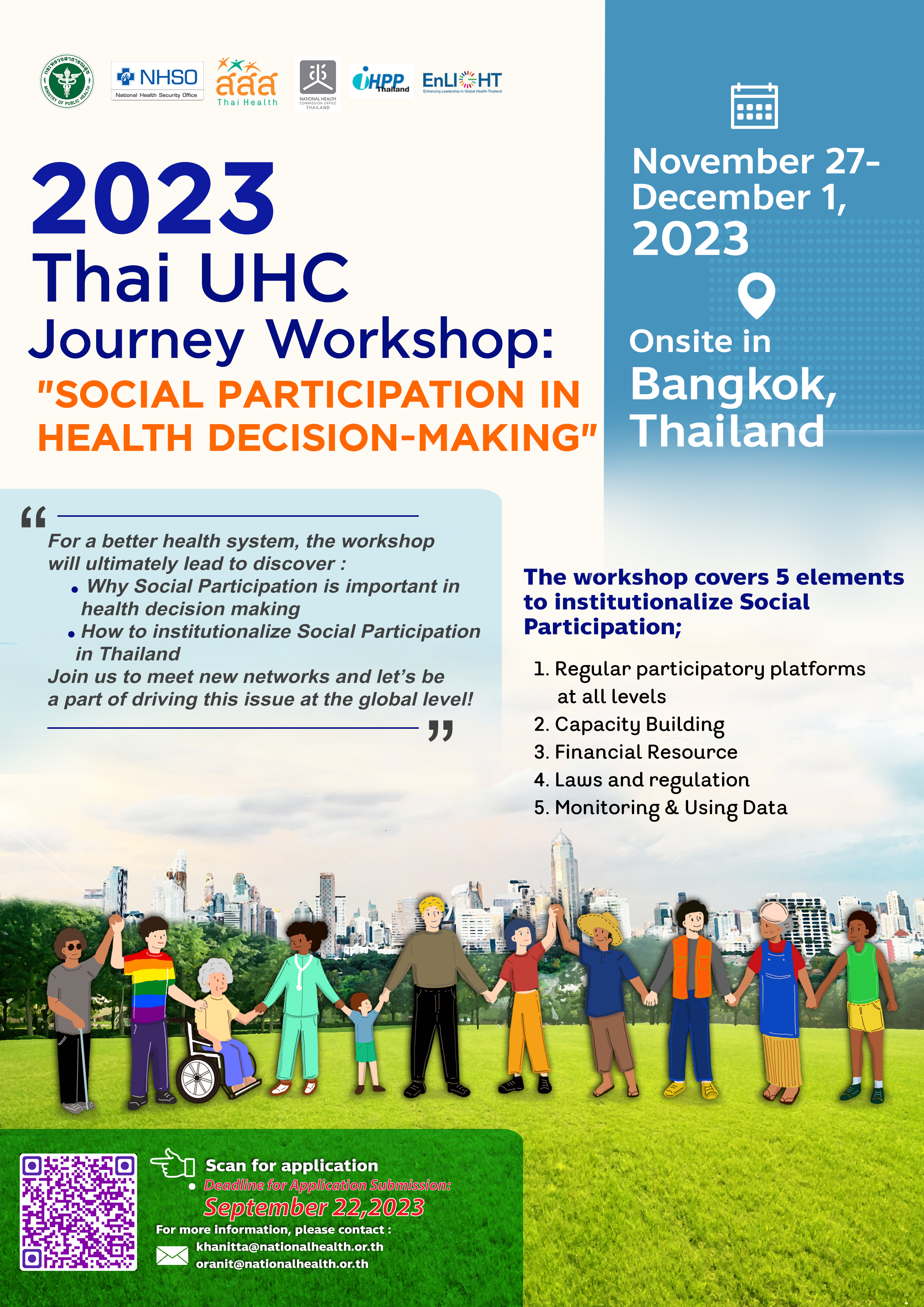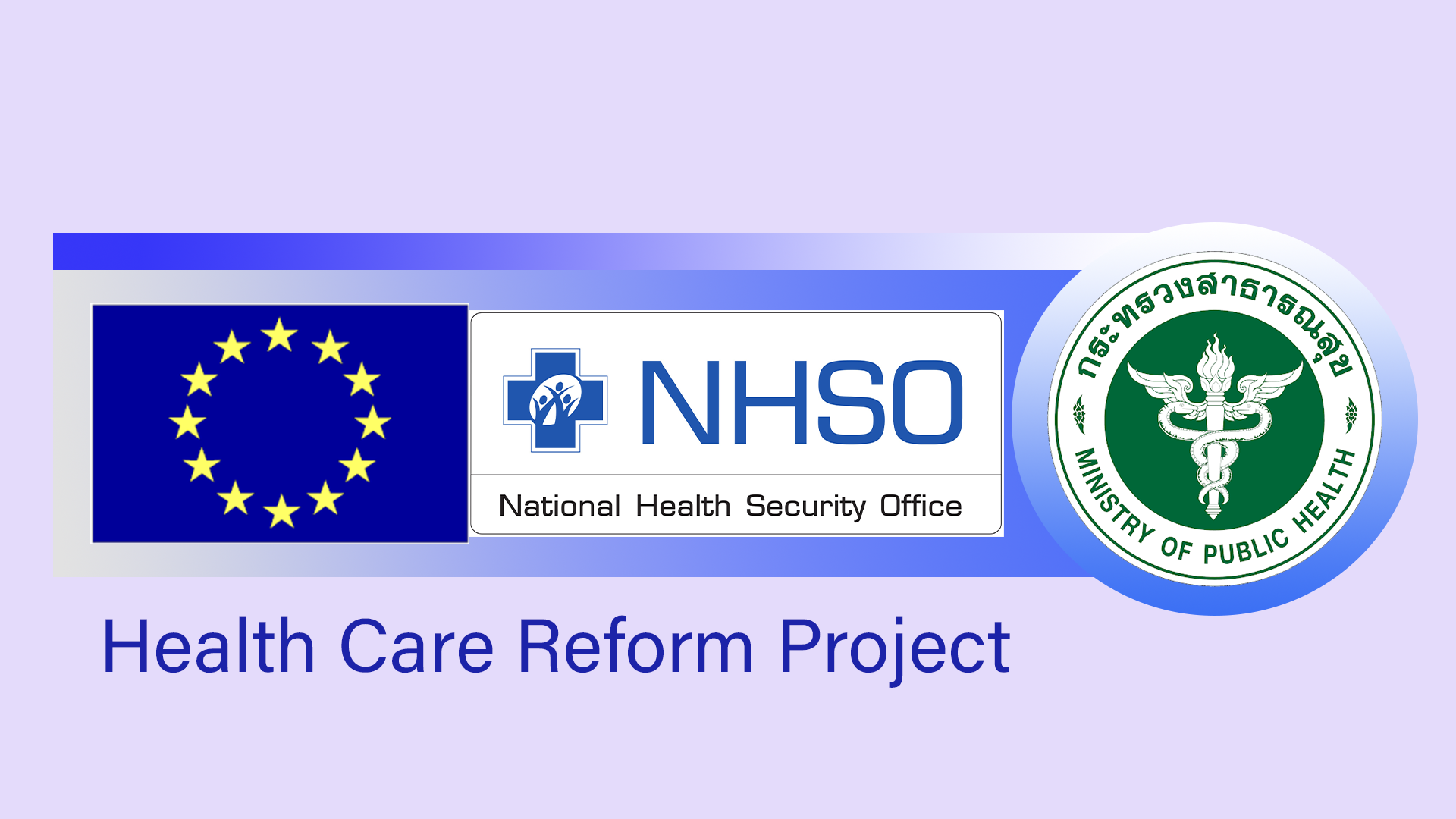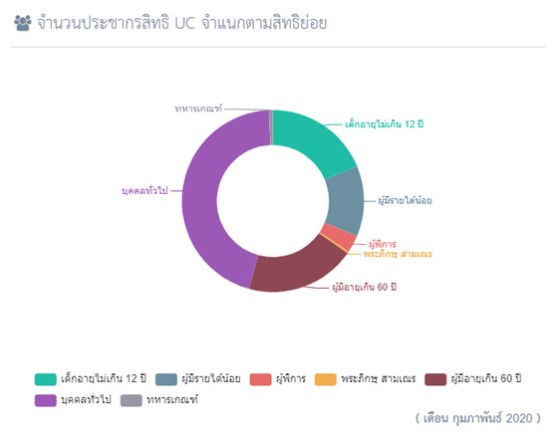One billion baht paid to COVID-19 vaccine recipients experiencing side effects
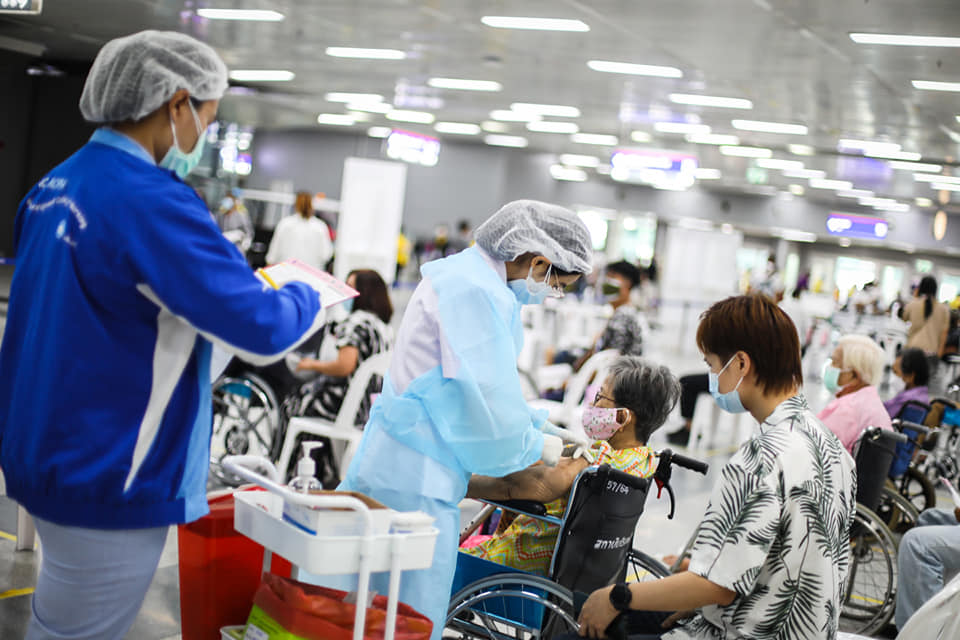
One billion baht paid to COVID-19 vaccine recipients experiencing side effects
The National Health Security Office (NHSO) has paid one billion baht compensation to nearly 10,000 people who reported adverse effects from COVID-19 vaccinations.
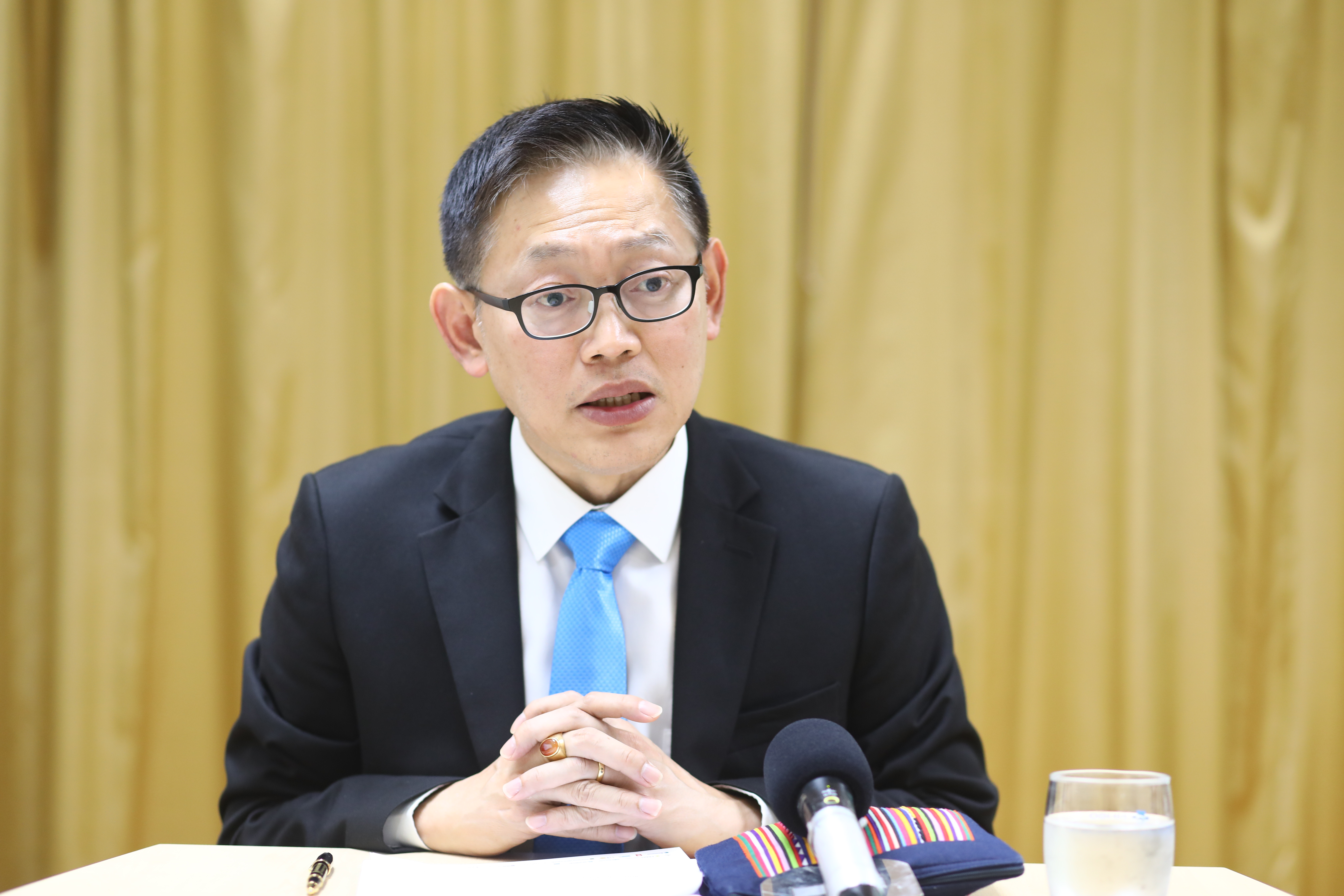
The NHSO Secretary-General, Dr Jadej Thammatacharee said that the no-fault compensation for COVID-19 vaccination is the Thai government’s policy, aiming to raise public confidence toward vaccines and encourage people to be vaccinated.
The government assigned the NHSO to implement the policy, including issuing a guideline for compensation eligibility, criteria, and payment system on May 16 last year. Only Thai citizens are eligible for the compensation.
As of Jan 14, there are 12,882 vaccine recipients launched complaints to claim compensation for undesired side effects. Around 74% of them or 9,551 complaints were accepted, which the NHSO paid a total of one billion baht in compensation for these cases.
Another 14.5% or 1,869 complaints do not meet the criteria for obtaining compensation. The rest or 1,462 cases are still under the NHSO committee’s scrutiny.
Nearly 20% of the complaints come from vaccine recipients in the NHSO region 13, Bangkok area and the rest are from all over the countries.
Around 52% of vaccine recipients are beneficiaries of the Universal Coverage Scheme (UCS), 25% Social Security Scheme, 20% Civil Servant Medical Benefits, and the rest are covered by other healthcare schemes.
The side effects reported to the NHSO are varied, including fever, abdominal pain, nausea, rash and itching, numbness, limb weakness, phylaxis shock, and death.
The compensation rates are divided into three categories, at most 100,000 baht for a persistent injury or illness, at most 240,000 baht for losses of body parts or disabilities, and at most 400,000 baht for death or permanent disabilities.
Around 18% of the complaints fall into the third category. However, about 55% of the complaints relate to non-severe side effects.
The vaccine recipients with adverse effects can launch complaints within two years after the side effects are observed, said Dr Jadej. They can submit their complaints at health units that provide them with COVID-19 shots, provincial health offices, or the NHSO regional offices.
After the submission, the NHSO’s regional subcommittees comprising health experts and civil society will scrutinize the complaints launched in their regions and based on the no-fault compensation principle.
The result will be announced within five days after complaints are submitted to the subcommittee. If the vaccine recipients disagree with the result, they can appeal with the NHSO secretary-general within 30 days after the result announcement.
.jpg)
Dr Athaporn Limpanyalers , the NHSO deputy secretary-general, emphasized that applying the no-fault compensation principle means the affected vaccine recipients will promptly receive the compensation without going through investigations or proving that vaccines cause the adverse events.
“The subcommittee's scrutiny process focuses on providing vaccine recipients with quick financial assistance. Any delays will exacerbate the side effects they are coping with,” he said.
“The subcommittee will look at their past medical records and side effect timelines, and consider the amount of compensation on a case-by-case basis.”
Since 2002, the NHSO has applied the no-fault compensation principle in the UCS, in which beneficiaries can claim compensation for medical errors without investigation that may span months to years.
The principle is pinned in section 41 of the National Health Security Act 2002, which set up the direction for the NHSO in striding toward Universal Health Coverage in Thailand.
///////////////
IN DEPTH
One billion baht paid to COVID-19 vaccine recipients experiencing side effects

One billion baht paid to COVID-19 vaccine recipients experiencing side effects
The National Health Security Office (NHSO) has paid one billion baht compensation to nearly 10,000 people who reported adverse effects from COVID-19 vaccinations.

The NHSO Secretary-General, Dr Jadej Thammatacharee said that the no-fault compensation for COVID-19 vaccination is the Thai government’s policy, aiming to raise public confidence toward vaccines and encourage people to be vaccinated.
The government assigned the NHSO to implement the policy, including issuing a guideline for compensation eligibility, criteria, and payment system on May 16 last year. Only Thai citizens are eligible for the compensation.
As of Jan 14, there are 12,882 vaccine recipients launched complaints to claim compensation for undesired side effects. Around 74% of them or 9,551 complaints were accepted, which the NHSO paid a total of one billion baht in compensation for these cases.
Another 14.5% or 1,869 complaints do not meet the criteria for obtaining compensation. The rest or 1,462 cases are still under the NHSO committee’s scrutiny.
Nearly 20% of the complaints come from vaccine recipients in the NHSO region 13, Bangkok area and the rest are from all over the countries.
Around 52% of vaccine recipients are beneficiaries of the Universal Coverage Scheme (UCS), 25% Social Security Scheme, 20% Civil Servant Medical Benefits, and the rest are covered by other healthcare schemes.
The side effects reported to the NHSO are varied, including fever, abdominal pain, nausea, rash and itching, numbness, limb weakness, phylaxis shock, and death.
The compensation rates are divided into three categories, at most 100,000 baht for a persistent injury or illness, at most 240,000 baht for losses of body parts or disabilities, and at most 400,000 baht for death or permanent disabilities.
Around 18% of the complaints fall into the third category. However, about 55% of the complaints relate to non-severe side effects.
The vaccine recipients with adverse effects can launch complaints within two years after the side effects are observed, said Dr Jadej. They can submit their complaints at health units that provide them with COVID-19 shots, provincial health offices, or the NHSO regional offices.
After the submission, the NHSO’s regional subcommittees comprising health experts and civil society will scrutinize the complaints launched in their regions and based on the no-fault compensation principle.
The result will be announced within five days after complaints are submitted to the subcommittee. If the vaccine recipients disagree with the result, they can appeal with the NHSO secretary-general within 30 days after the result announcement.
.jpg)
Dr Athaporn Limpanyalers , the NHSO deputy secretary-general, emphasized that applying the no-fault compensation principle means the affected vaccine recipients will promptly receive the compensation without going through investigations or proving that vaccines cause the adverse events.
“The subcommittee's scrutiny process focuses on providing vaccine recipients with quick financial assistance. Any delays will exacerbate the side effects they are coping with,” he said.
“The subcommittee will look at their past medical records and side effect timelines, and consider the amount of compensation on a case-by-case basis.”
Since 2002, the NHSO has applied the no-fault compensation principle in the UCS, in which beneficiaries can claim compensation for medical errors without investigation that may span months to years.
The principle is pinned in section 41 of the National Health Security Act 2002, which set up the direction for the NHSO in striding toward Universal Health Coverage in Thailand.
///////////////
Events
One billion baht paid to COVID-19 vaccine recipients experiencing side effects

One billion baht paid to COVID-19 vaccine recipients experiencing side effects
The National Health Security Office (NHSO) has paid one billion baht compensation to nearly 10,000 people who reported adverse effects from COVID-19 vaccinations.

The NHSO Secretary-General, Dr Jadej Thammatacharee said that the no-fault compensation for COVID-19 vaccination is the Thai government’s policy, aiming to raise public confidence toward vaccines and encourage people to be vaccinated.
The government assigned the NHSO to implement the policy, including issuing a guideline for compensation eligibility, criteria, and payment system on May 16 last year. Only Thai citizens are eligible for the compensation.
As of Jan 14, there are 12,882 vaccine recipients launched complaints to claim compensation for undesired side effects. Around 74% of them or 9,551 complaints were accepted, which the NHSO paid a total of one billion baht in compensation for these cases.
Another 14.5% or 1,869 complaints do not meet the criteria for obtaining compensation. The rest or 1,462 cases are still under the NHSO committee’s scrutiny.
Nearly 20% of the complaints come from vaccine recipients in the NHSO region 13, Bangkok area and the rest are from all over the countries.
Around 52% of vaccine recipients are beneficiaries of the Universal Coverage Scheme (UCS), 25% Social Security Scheme, 20% Civil Servant Medical Benefits, and the rest are covered by other healthcare schemes.
The side effects reported to the NHSO are varied, including fever, abdominal pain, nausea, rash and itching, numbness, limb weakness, phylaxis shock, and death.
The compensation rates are divided into three categories, at most 100,000 baht for a persistent injury or illness, at most 240,000 baht for losses of body parts or disabilities, and at most 400,000 baht for death or permanent disabilities.
Around 18% of the complaints fall into the third category. However, about 55% of the complaints relate to non-severe side effects.
The vaccine recipients with adverse effects can launch complaints within two years after the side effects are observed, said Dr Jadej. They can submit their complaints at health units that provide them with COVID-19 shots, provincial health offices, or the NHSO regional offices.
After the submission, the NHSO’s regional subcommittees comprising health experts and civil society will scrutinize the complaints launched in their regions and based on the no-fault compensation principle.
The result will be announced within five days after complaints are submitted to the subcommittee. If the vaccine recipients disagree with the result, they can appeal with the NHSO secretary-general within 30 days after the result announcement.
.jpg)
Dr Athaporn Limpanyalers , the NHSO deputy secretary-general, emphasized that applying the no-fault compensation principle means the affected vaccine recipients will promptly receive the compensation without going through investigations or proving that vaccines cause the adverse events.
“The subcommittee's scrutiny process focuses on providing vaccine recipients with quick financial assistance. Any delays will exacerbate the side effects they are coping with,” he said.
“The subcommittee will look at their past medical records and side effect timelines, and consider the amount of compensation on a case-by-case basis.”
Since 2002, the NHSO has applied the no-fault compensation principle in the UCS, in which beneficiaries can claim compensation for medical errors without investigation that may span months to years.
The principle is pinned in section 41 of the National Health Security Act 2002, which set up the direction for the NHSO in striding toward Universal Health Coverage in Thailand.
///////////////
RESOURCE CENTER
SECRETARY-GENERAL
One billion baht paid to COVID-19 vaccine recipients experiencing side effects

One billion baht paid to COVID-19 vaccine recipients experiencing side effects
The National Health Security Office (NHSO) has paid one billion baht compensation to nearly 10,000 people who reported adverse effects from COVID-19 vaccinations.

The NHSO Secretary-General, Dr Jadej Thammatacharee said that the no-fault compensation for COVID-19 vaccination is the Thai government’s policy, aiming to raise public confidence toward vaccines and encourage people to be vaccinated.
The government assigned the NHSO to implement the policy, including issuing a guideline for compensation eligibility, criteria, and payment system on May 16 last year. Only Thai citizens are eligible for the compensation.
As of Jan 14, there are 12,882 vaccine recipients launched complaints to claim compensation for undesired side effects. Around 74% of them or 9,551 complaints were accepted, which the NHSO paid a total of one billion baht in compensation for these cases.
Another 14.5% or 1,869 complaints do not meet the criteria for obtaining compensation. The rest or 1,462 cases are still under the NHSO committee’s scrutiny.
Nearly 20% of the complaints come from vaccine recipients in the NHSO region 13, Bangkok area and the rest are from all over the countries.
Around 52% of vaccine recipients are beneficiaries of the Universal Coverage Scheme (UCS), 25% Social Security Scheme, 20% Civil Servant Medical Benefits, and the rest are covered by other healthcare schemes.
The side effects reported to the NHSO are varied, including fever, abdominal pain, nausea, rash and itching, numbness, limb weakness, phylaxis shock, and death.
The compensation rates are divided into three categories, at most 100,000 baht for a persistent injury or illness, at most 240,000 baht for losses of body parts or disabilities, and at most 400,000 baht for death or permanent disabilities.
Around 18% of the complaints fall into the third category. However, about 55% of the complaints relate to non-severe side effects.
The vaccine recipients with adverse effects can launch complaints within two years after the side effects are observed, said Dr Jadej. They can submit their complaints at health units that provide them with COVID-19 shots, provincial health offices, or the NHSO regional offices.
After the submission, the NHSO’s regional subcommittees comprising health experts and civil society will scrutinize the complaints launched in their regions and based on the no-fault compensation principle.
The result will be announced within five days after complaints are submitted to the subcommittee. If the vaccine recipients disagree with the result, they can appeal with the NHSO secretary-general within 30 days after the result announcement.
.jpg)
Dr Athaporn Limpanyalers , the NHSO deputy secretary-general, emphasized that applying the no-fault compensation principle means the affected vaccine recipients will promptly receive the compensation without going through investigations or proving that vaccines cause the adverse events.
“The subcommittee's scrutiny process focuses on providing vaccine recipients with quick financial assistance. Any delays will exacerbate the side effects they are coping with,” he said.
“The subcommittee will look at their past medical records and side effect timelines, and consider the amount of compensation on a case-by-case basis.”
Since 2002, the NHSO has applied the no-fault compensation principle in the UCS, in which beneficiaries can claim compensation for medical errors without investigation that may span months to years.
The principle is pinned in section 41 of the National Health Security Act 2002, which set up the direction for the NHSO in striding toward Universal Health Coverage in Thailand.
///////////////
VIDEOS
Thailand's UHC Journey
UHC Public relations
